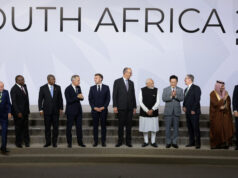Is the India Russia relationship entering a grey zone? Witness Russia’s foreign minister Lavrov, at a media briefing on Tuesday in Moscow, offering to lend a helping hand so India and Pakistan can resolve their problems.
For good measure, he also suggested that China join in, saying the Moscow Format was an ideal platform for the three countries to communicate and better understand each other.
Nandan Unnikrishnan, who heads the Russia studies programme at the ORF, believes that those comments may be directed more at Pakistan, less at India. Speaking on The Gist, he pointed to the former is facing the full brunt of Taliban fury and if the fighting escalates, it could destabilise the entire region.
Russia’s Lavrov was probably concerned that an unstable southern border would not help at a time when Moscow is preoccupied with the war in Ukraine.
Add to that, with the Syrian conflict having wound down, a whole bunch of radicalised fighters from Central Asia are expected to make the long trek home. Their presence could ignite long suppressed Islamist sentiments in their home countries and fan the flames of conflict.
In that sense, Russian thinking probably sees the Taliban as a reasonably stable group for now, and there’s no harm in bringing in a greater modicum of stability with more humanitarian assistance, economic aid and so on.
Russia would also like Iran to get involved in this, perhaps even the Arab Gulf states that can fund projects in Afghanistan. In other words, the more other countries get involved in Afghanistan, the lower the cost (which is important) and the better the chance of something permanent evolving.
Would India, after having invested $3 billion in previous Afghan regimes, be inclined to go along? Hard to say, but Unnikrishnan believes India enjoys considerable standing among ordinary Afghans, and that is a connection India needs to sustain.
All this of course short of diplomatic recognition, which remains a no-go area.
Tune in for more in this crisp conversation with Nandan Unnikrishnan of the Observer Research Foundation.
Thirty eight years in journalism, widely travelled, history buff with a preference for Old Monk Rum. Current interest/focus spans China, Technology and Trade. Recent reads: Steven Colls Directorate S and Alexander Frater's Chasing the Monsoon. Netflix/Prime video junkie. Loves animal videos on Facebook. Reluctant tweeter.




